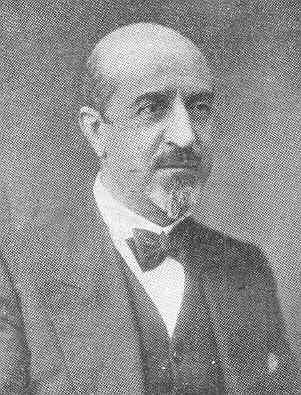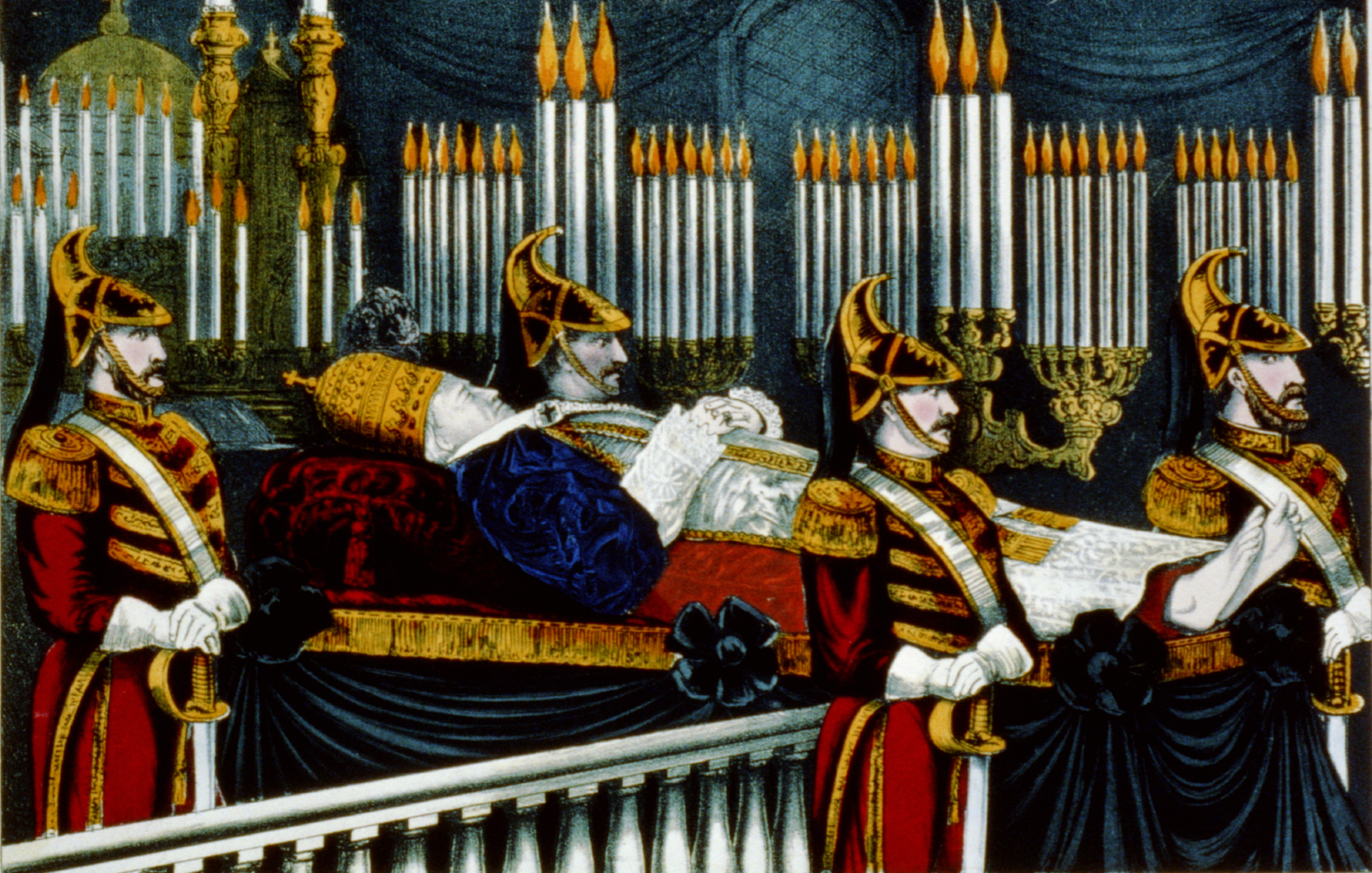|
National Union (Italy, 1923)
National Union (''Unione Nazionale'') was a pro-fascist Italian Catholic political party during the 1920s, the first of several " Clerico-Fascist" political organizations established within the decade. The party was established with the permission of Pope Pius XI, dealing the final blow to the anti-fascist Catholic Italian People's Party. The National Union's membership primarily came from aristocratic and pro-monarchist Catholics in Turin, Milan, and Naples, along with members of the Black Nobility. These groups represented over half of the signatories of the party's April 1923 manifesto. Pollard describes the National Union as "essentially an aristocratic clique". Its manifesto credited fascism with the goal of establishing "a lasting social Christian and Italian order". According to the pro-Fascist '' Il Momento'' of Turin, the party was notorious for its "hostility towards the works and towards trade union organizations".Blinkhorn, 1990, p. 35. The National Union, and the sim ... [...More Info...] [...Related Items...] OR: [Wikipedia] [Google] [Baidu] |
Clerical Fascism
Clerical fascism (also clero-fascism or clerico-fascism) is an ideology that combines the political and economic doctrines of fascism with clericalism. The term has been used to describe organizations and movements that combine religious elements with fascism, receive support from religious organizations which espouse sympathy for fascism, or fascist regimes in which clergy play a leading role. History The term ''clerical fascism'' (clero-fascism or clerico-fascism) emerged in the early 1920s in the Kingdom of Italy, referring to the faction of the Roman Catholic Partito Popolare Italiano (PPI) which supported Benito Mussolini and his régime. It was supposedly coined by Don Luigi Sturzo, a priest and Christian democrat leader who opposed Mussolini and went into exile in 1924, although the term had also been used before Mussolini's March on Rome in 1922 to refer to Catholics in Northern Italy who advocated a synthesis of Roman Catholicism and fascism. Sturzo made a distinction ... [...More Info...] [...Related Items...] OR: [Wikipedia] [Google] [Baidu] |
Political Parties Established In 1923
Politics (from , ) is the set of activities that are associated with making decisions in groups, or other forms of power relations among individuals, such as the distribution of resources or status. The branch of social science that studies politics and government is referred to as political science. It may be used positively in the context of a "political solution" which is compromising and nonviolent, or descriptively as "the art or science of government", but also often carries a negative connotation.. The concept has been defined in various ways, and different approaches have fundamentally differing views on whether it should be used extensively or limitedly, empirically or normatively, and on whether conflict or co-operation is more essential to it. A variety of methods are deployed in politics, which include promoting one's own political views among people, negotiation with other political subjects, making laws, and exercising internal and external force, including wa ... [...More Info...] [...Related Items...] OR: [Wikipedia] [Google] [Baidu] |
Defunct Political Parties In Italy
{{Disambiguation ...
Defunct (no longer in use or active) may refer to: * ''Defunct'' (video game), 2014 * Zombie process or defunct process, in Unix-like operating systems See also * * :Former entities * End-of-life product * Obsolescence Obsolescence is the state of being which occurs when an object, service, or practice is no longer maintained or required even though it may still be in good working order. It usually happens when something that is more efficient or less risky r ... [...More Info...] [...Related Items...] OR: [Wikipedia] [Google] [Baidu] |
Lateran Treaties
The Lateran Treaty ( it, Patti Lateranensi; la, Pacta Lateranensia) was one component of the Lateran Pacts of 1929, agreements between the Kingdom of Italy under King Victor Emmanuel III of Italy and the Holy See under Pope Pius XI to settle the long-standing Roman Question. The treaty and associated pacts were named after the Lateran Palace where they were signed on 11 February 1929, and the Italian parliament ratified them on 7 June 1929. The treaty recognized Vatican City as an independent state under the sovereignty of the Holy See. The Italian government also agreed to give the Roman Catholic Church financial compensation for the loss of the Papal States. In 1948, the Lateran Treaty was recognized in the Constitution of Italy as regulating the relations between the state and the Catholic Church. Constitution of Italy, article 7. The treaty was significantly revised in 1984, ending the status of Catholicism as the sole state religion. Content The Lateran Pacts are often pr ... [...More Info...] [...Related Items...] OR: [Wikipedia] [Google] [Baidu] |
Centro Nazionale
Centro may refer to: Places Brazil *Centro, Santa Maria, a neighborhood in Santa Maria, Rio Grande do Sul, Brazil * Centro, Porto Alegre, a neighborhood of Porto Alegre, Rio Grande do Sul, Brazil *Centro (Duque de Caxias), a neighborhood of Duque de Caxias, Rio de Janeiro, Brazil *, a neighborhood of Niterói, Rio de Janeiro, Brazil *Centro, Rio de Janeiro, a neighborhood of Rio de Janeiro, Brazil *Centro (São Paulo), the historic downtown of São Paulo, Brazil *, Aracaju, Sergipe, Brazil Mexico *Centro, Guadalajara, Jalisco, Mexico *Centro, Puerto Vallarta, Jalisco, Mexico *Centro Municipality, Tabasco, Mexico *Centro (borough), Tijuana, Baja California, Mexico * Centro, Yucatán, Mexico *Centro, the historic center of Mexico City, Mexico Elsewhere *Centro Habana, Cuba *Centro, Mandaue, a barangay in the Philippines *Centro Region, Portugal *Centro, Moca, Puerto Rico, a subdivision (also called a ''barrio'') of Moca, Puerto Rico *Centro (Madrid), a district of the city of Mad ... [...More Info...] [...Related Items...] OR: [Wikipedia] [Google] [Baidu] |
Trade Union
A trade union (labor union in American English), often simply referred to as a union, is an organization of workers intent on "maintaining or improving the conditions of their employment", ch. I such as attaining better wages and benefits (such as holiday, health care, and retirement), improving working conditions, improving safety standards, establishing complaint procedures, developing rules governing status of employees (rules governing promotions, just-cause conditions for termination) and protecting the integrity of their trade through the increased bargaining power wielded by solidarity among workers. Trade unions typically fund their head office and legal team functions through regularly imposed fees called ''union dues''. The delegate staff of the trade union representation in the workforce are usually made up of workplace volunteers who are often appointed by members in democratic elections. The trade union, through an elected leadership and bargaining committee, ... [...More Info...] [...Related Items...] OR: [Wikipedia] [Google] [Baidu] |
Black Nobility
The black nobility or black aristocracy ( it, nobiltà nera, aristocrazia nera) are Rome, Roman aristocracy, aristocratic families who sided with the Papacy under Pope Pius IX after the House of Savoy, Savoy family-led army of the Kingdom of Italy entered Rome on 20 September 1870, overthrew the Pope and the Papal States, and took over the Quirinal Palace, and any nobles subsequently ennobled by the Pope prior to the 1929 Lateran Treaty. For the next 59 years, the Pope confined himself to Vatican City and claimed to be a prisoner in the Vatican to avoid the appearance of accepting the authority of the new Italian government and state. Aristocrats who had been ennobled by the Pope and were formerly subjects of the Papal states, including the senior members of the Papal Court, kept the front doors of their palaces in Rome closed to mourn the Pope's confinement, which led to their being called the "black nobility". History Despite the relatively recent name, the Black Nobility ha ... [...More Info...] [...Related Items...] OR: [Wikipedia] [Google] [Baidu] |
Italian Chamber Of Deputies
The Chamber of Deputies ( it, Camera dei deputati) is the lower house of the bicameral Italian Parliament (the other being the Senate of the Republic). The two houses together form a perfect bicameral system, meaning they perform identical functions, but do so separately. The Chamber of Deputies has 400 seats, of which 392 will be elected from Italian constituencies, and 8 from Italian citizens living abroad. Deputies are styled ''The Honourable'' (Italian: ''Onorevole'') and meet at Palazzo Montecitorio. Location The seat of the Chamber of Deputies is the ''Palazzo Montecitorio'', where it has met since 1871, shortly after the capital of the Kingdom of Italy was moved to Rome at the successful conclusion of the Italian unification ''Risorgimento'' movement. Previously, the seat of the Chamber of Deputies of the Kingdom of Italy had been briefly at the ''Palazzo Carignano'' in Turin (1861–1865) and the ''Palazzo Vecchio'' in Florence (1865–1871). Under the Fascist regime o ... [...More Info...] [...Related Items...] OR: [Wikipedia] [Google] [Baidu] |
Naples
Naples (; it, Napoli ; nap, Napule ), from grc, Νεάπολις, Neápolis, lit=new city. is the regional capital of Campania and the third-largest city of Italy, after Rome and Milan, with a population of 909,048 within the city's administrative limits as of 2022. Its province-level municipality is the third-most populous metropolitan city in Italy with a population of 3,115,320 residents, and its metropolitan area stretches beyond the boundaries of the city wall for approximately 20 miles. Founded by Greeks in the first millennium BC, Naples is one of the oldest continuously inhabited urban areas in the world. In the eighth century BC, a colony known as Parthenope ( grc, Παρθενόπη) was established on the Pizzofalcone hill. In the sixth century BC, it was refounded as Neápolis. The city was an important part of Magna Graecia, played a major role in the merging of Greek and Roman society, and was a significant cultural centre under the Romans. Naples served a ... [...More Info...] [...Related Items...] OR: [Wikipedia] [Google] [Baidu] |





